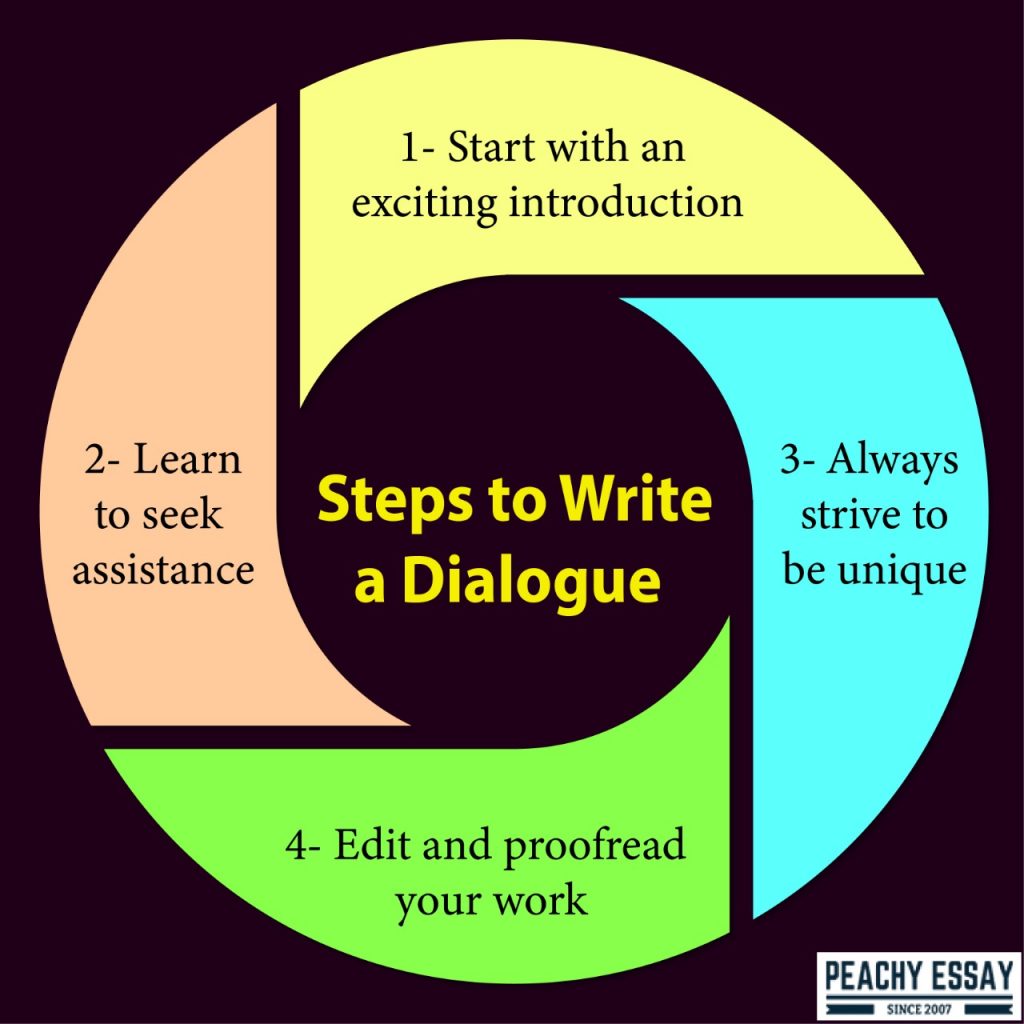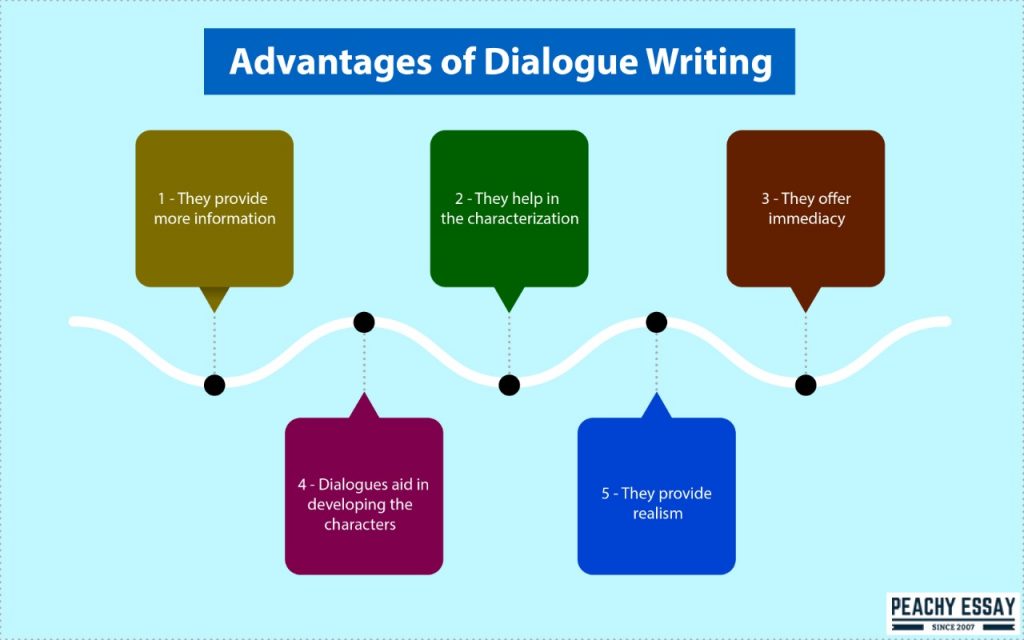Generally, most people, and especially the students, do not enjoy the entire process of creating an excellent paper. This is because the procedure is not only time consuming and lengthy but also tiring. Sometimes, you might find yourself having difficulty deciding between completing your papers or spending time with your friends and family, among many other things. As a student, if you want to score excellent academic grades, you must always strive to improve your writing skills. Otherwise, how will you perform well if you cannot write impressive essays, dissertations, or academic papers? It does not matter whether you are good at writing research papers, essays, dissertations, or thesis. As a writer, you must constantly strive to improve your writing skills.
Most importantly, you will need to devote more time and learn how to develop your characters and the story of your paper. It is essential always to remember that dialogue is the backbone of any story, and therefore, you must ensure that there is no point in time when you have written a bad dialogue. There is no doubt that most people have difficulty writing dialogues that engage the audience. If you are among such people, you might consider reading this article till the end to learn everything about writing a top-notch dialogue.
What is a Dialogue?
Dialogue entails a conversation or the exchange of words, ideas, or information among different characters. The primary objective of any dialogue is usually to communicate a precise message or to exchange information and ideas. In most cases, dialogues are aimed at convincing someone to agree or believe in a particular thing. Most writers, especially students, have difficulty writing excellent dialogues because they always want to perfect everything they do. If you spare some time and read some of the well-written dialogues, you will realize that they are often filled with inconsistencies, incomplete sentences, and interruptions. The secret to writing an engaging dialogue is to try and come up with authentic interactions instead of concentrating too much on your paper`s clarity and fluency.
Characteristics of a Well-Written Dialogue
The following characteristics significantly determine whether a dialogue is well-written or not. First and foremost, your dialogue should at all times move the story forward, in the sense that every time a person flips the next page, they should be a step closer to the climax of your story or the conclusion of your paper. That way, the reader will always be in anticipation of what will follow. Secondly, your dialogue should always show relevant information about a certain character in the story. A dialogue should provide in-depth information about what the character is experiencing, their emotions, behaviours, motives, and what motivates them to make a specific move. Most importantly, your dialogue should describe the relationship that exists between the different characters in your story. Unfortunately, if your dialogue does not achieve these characteristics, you will have difficulty convincing your audience to continue reading your paper.
Things to Consider when Writing a Dialogue

-
Start with an exciting introduction
Generally, whether a person will read your entire paper or not is dependent mainly on how well you have written your introduction. If your opening is dull, the chances are high that your readers will not go through your entire paper. Therefore, if you want to capture your audience`s attention and maintain it throughout your paper, you must ensure that your introduction is interesting and engaging. If you are unsure whether your introduction is fascinating, you might consider asking your colleague or friend to review your paper and give you honest feedback.
-
Learn to seek assistance
Once in a while, you might find yourself having difficulties completing your tasks because of unavoidable reasons. Other times, you might not have understood the instructions or requirements for writing a dialogue assignment. The chances are high that no one will assist you if you do not go the extra mile and seek assistance. The bottom line is that you should always seek help whenever you encounter any form of difficulty. Apparently, there is no shame in not knowing something.
-
Always strive to be unique
It is always a good idea to go through dialogues written by other well-established writers. That way, you will be able to learn about the different techniques that have been used and, if necessary, incorporate them in your paper. However, as much as you are learning and increasing your knowledge by reading articles written by other authors, you must always strive to be unique. It would be best if you never attempted to write like someone else.
-
Edit and proofread your work
Some careless mistakes, such as poor sentence structure, wrong punctuation, or spelling mistakes, often make the reader lose interest in reading a published article or a dialogue. In as much as editing and proofreading your work might seem not necessary, you must always spare some time to go through your paper before publishing it online or submitting it to the lecturer for grading.
Benefits of writing dialogue in your book

-
They provide more information
Dialogues are usually an effective way of providing more information to your audience. Dialogues aid in revealing the character`s motives, motivations, moods, emotions, passions and more. Instead of offering the readers a lengthy story, you might consider using a dialogue, since they effectively introduce new information in the book. In essence, dialogues aid in offering more information to the readers.
-
They help in the characterization
As mentioned earlier, a well-written dialogue should provide in-depth information to the reader. It should offer detailed information concerning the different characters used in the story. It is essential to remember that dialogues are usually effective ways of revealing the behavioural traits of different characters. When you read about a particular character, you will better understand some of the characteristics that make them unique. For instance, you could learn whether they are boring, engaging, happy, sad, attractive, educated, and so much more.
-
They offer immediacy
Although you might not have known this, the truth is that dialogues aid the reader to be actively involved in the story. The reader can experience most, if not all, of the things described by the author. When it comes to movies, your audience will be able to see, hear, and understand the character`s actions without so much difficulty.
-
Dialogues aid in developing the characters
If you have ever read a well-written dialogue, you might have realized that the characters always keep on evolving. Once or twice, you might see or read about a character experiencing a change of moods or emotions. For instance, you might read that character A is over-excited due to winning a particular lottery. Suddenly, the attitude of character A changes when they remember that they have incomplete assignments whose deadlines are almost due. A dialogue aids the reader to follow through the different character`s moods, which would not have been possible if the writer had narrated the various incidents that took place.
-
They provide realism
One of the fascinating things about dialogue is that they describe different characters as well as how they relate to one another. Instead of just telling a story, dialogues play a vital role in showing what is happening. In other words, it breathes life into the different characters and also depicts a specific scene gaudily. They enable the audience or readers to have a first-hand experience and draw a logical conclusion from the story.
How to Write Dialogue in a Book
- Take your time to understand the different characters
While writing the dialogue of your book, you must first understand your characters and the different roles each one of them will be playing. You would not want to confuse your audience because of the similar roles played by different authors. You might consider coming up with different character traits or introducing different tones and emotions for different characters.
- Always strive to go straight to the point
The length of your dialogue should not be similar to that of a novel. Most of the best-written dialogues are usually brief. The information presented by the authors is usually straight to the point. Most readers are not interested to read lengthy dialogues.
- Always strive to be consistent
Whenever you are writing dialogue for your book, you should always strive to be as consistent as possible, especially regarding the different characters. As mentioned above, you should avoid confusing your audiences because of similar roles played by different characters. It would be best if you ensured that different characters also have unique roles.
Closing Remarks
As mentioned above, not everyone enjoys the entire writing process. Most people have the wrong perception that writing dialogues is not easy. While writing dialogue, you are required to utilize the natural Candice of language to develop a typical human conversation. That is not easy for some people since they have already formed the wrong perception right from the start. Hopefully, this article will help you change the false perception you have regarding dialogues.


